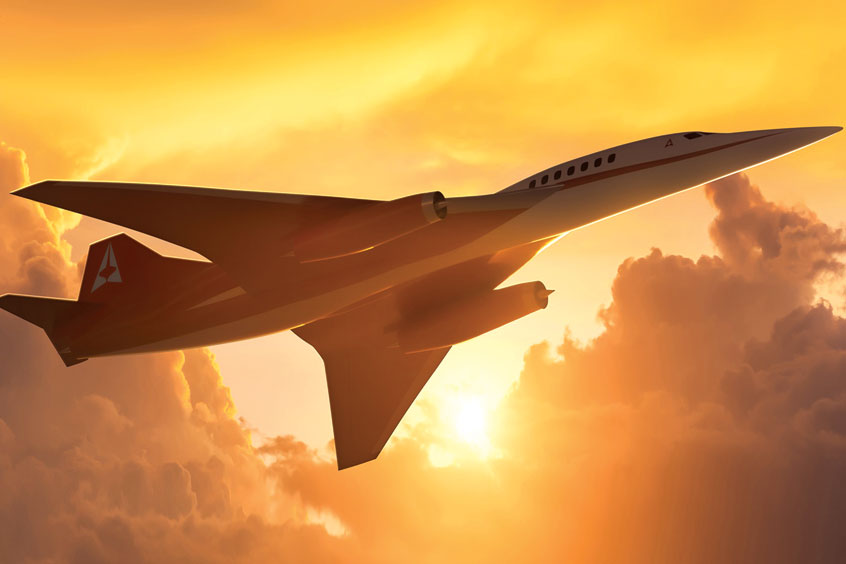Why visit ACE ’25?

Supersonic aircraft company Aerion has selected Collins Aerospace Systems, a unit of Raytheon Technologies, for the development of the moveable leading edge actuation system, elevons actuation system, horizontal stabiliser actuation system and the rudder actuation system for the AS2 business jet.
“The very nature of supersonic travel presents some unique challenges when it comes to designing reliable and precise systems to guide the aircraft, and we are eager to address them head-on as part of the Aerion team. Collins Aerospace has a long history in advancing complex actuation systems for both commercial and military platforms, and we look forward to continuing this legacy with the AS2,” says Ed Dryden, VP of actuation systems at Collins Aerospace.
“Collins Aerospace is a globally renowned company operating on the cutting edge of aerospace technology with decades of proven experience in successful programme delivery and performance,” adds Aerion CEO Tom Vice. “We are delighted to have Collins as part of our AS2 team and look forward to collaborating as we continue to transition the AS2 to production.”
Collins Aerospace is well-versed in fly-by-wire, hydraulic and electrohydraulic actuation design, and offers a complete line of actuation products that enhance aircraft performance and reduce pilot workload. The AS2 flight controls will be developed and designed from Collins' actuation system centres of excellence in Wolverhampton in the UK and Vernon in France.
Aerion's pursuit of faster point-to-point travel begins with the launch of the AS2 supersonic business jet, which will commence production in 2023. Designed to be inherently environmentally responsible from first flight, the AS2 is the first supersonic aircraft designed with the ability to accept 100 per cent synthetic fuel and reach supersonic speeds without the need for an afterburner.
The manufacture of 300 AS2s is planned for the first decade of production. The model will be the first aircraft to be assembled at the company's new Aerion Park global headquarters in Melbourne, Florida. The development, powered by clean energy, will incorporate headquarters operations plus an integrated campus for research, design, build and support of the company's supersonic aircraft.